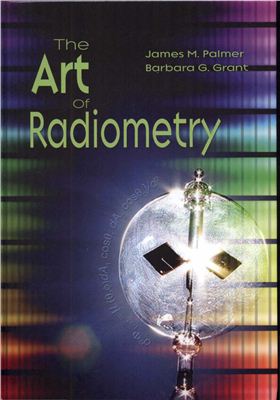Bellingham, Washington USA, 2010 - 370 pages
The material from this book was derived from a popular first-year graduate class taught by James M. Palmer for over twenty years at the University of Arizona College of Optical Sciences. This text covers topics in radiation propagation, radiometric sources, optical materials, detectors of optical radiation, radiometric measurements, and calibration. Radiometry forms the practical basis of many current applications in aerospace engineering, infrared systems engineering, remote sensing systems, displays, visible and ultraviolet sensors, infrared detectors of optical radiation, and many other areas. While several texts individually cover topics in specific areas, this text brings the underlying principles together in a manner suitable for both classroom teaching and a reference volume that the practicing engineer can use.
The level of discussion of the material is suitable for a class taught to advanced undergraduate students or graduate students. Although this book is not a theoretical treatment, the mathematics required to understand all equations include differential and integral calculus.
This text should be foremost in the toolkit of the practicing engineer or scientist working on radiometric problems in areas of optical engineering, electro-optical engineering, systems engineering, imagery analysis, and many others, allowing the technical professional to successfully apply radiometric principles in his or her work.
The material from this book was derived from a popular first-year graduate class taught by James M. Palmer for over twenty years at the University of Arizona College of Optical Sciences. This text covers topics in radiation propagation, radiometric sources, optical materials, detectors of optical radiation, radiometric measurements, and calibration. Radiometry forms the practical basis of many current applications in aerospace engineering, infrared systems engineering, remote sensing systems, displays, visible and ultraviolet sensors, infrared detectors of optical radiation, and many other areas. While several texts individually cover topics in specific areas, this text brings the underlying principles together in a manner suitable for both classroom teaching and a reference volume that the practicing engineer can use.
The level of discussion of the material is suitable for a class taught to advanced undergraduate students or graduate students. Although this book is not a theoretical treatment, the mathematics required to understand all equations include differential and integral calculus.
This text should be foremost in the toolkit of the practicing engineer or scientist working on radiometric problems in areas of optical engineering, electro-optical engineering, systems engineering, imagery analysis, and many others, allowing the technical professional to successfully apply radiometric principles in his or her work.

